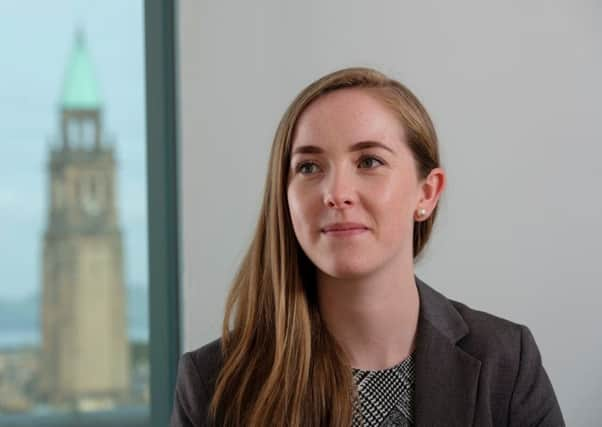Laura Rennie: Millennials more optimistic about their charitable impact


In 2019, an estimated £10.1 billion was donated to charitable causes. Notably, this remains at approximately the same level as a decade ago. According to the Charities Aid Foundation’s UK Giving Report, although fewer people are giving to charity, those who are giving are donating more. While the level of charitable donations has remained relatively static, the approach to philanthropic giving has changed dramatically and we have seen number of emerging trends.
Over the past decade we have experienced a relatively stable economic environment. As a result, some individuals are more inclined to consider the possibility and opportunity of philanthropic giving. And our government deficit has also risen over the same period, meaning that charitable giving is not purely an attractive prospect but also necessary to bridge the gap between good causes’ need for financial support and government’s ability to provide that support.
Advertisement
Hide AdAdvertisement
Hide AdWith the rise of social media there is a greater focus on reputation and accountability in society, and an increased desire for transparency both for businesses and for individuals. Generational shifts are driving this transformation in philanthropy, with Millennials taking a different approach from baby boomers. The Millennial outlook is simultaneously more comprehensive, inclusive and socially aware. Millennials are also more optimistic about their potential impact, their ability to stimulate change, and their influence on those around them. This fresh approach may also be linked to a shift in the origin of wealth. In 1989 two-thirds of the wealthiest people in the UK possessed inherited wealth. Today more than 80 per cent of the UK population has new or created wealth. Overall, there is evidence that individuals with created wealth are more likely to give generously. Therefore, in the next decade it is possible that we may see a further increase in philanthropic giving from this particular demographic. Businesses too are becoming more focused on philanthropy and on giving something back to wider society and local communities in which they operate as part of their ‘corporate social responsibility’ strategies.
Technology is also giving rise to new trends in philanthropy. Those wishing to make a donation now have convenient tools and powerful technologies to comprehensively research the good causes they wish to support, meaning benefactors are more likely to screen charitable organisations. Technology has also allowed donors to be more focused on results and there is an expectation on their part that they will be given more information about how their money has been spent.
From an individual point of view, there are also attractive tax benefits (for example, lifetime gifts to charities are exempt from Inheritance Tax). However, our experience of working with clients is that the tax benefits of philanthropic giving are an added benefit rather than an incentive. The increased awareness of charitable planning and the option to donate private wealth to charity has also been evident in the proliferation of giving methods – such as the online platform JustGiving – and legal vehicles, such as charitable trusts and donor-advised funds.
Our experience has also been that those who take professional advice on how to be more strategic and focused in the charitable donations they make tend to give more than their donor peers, and report much higher levels of satisfaction. Therefore, demand for advice in the area of philanthropic giving has increased and professional advisers subsequently have an important role to play in facilitating this.
In light of these recent trends, charities are embracing this opportunity to engage more with individuals and their advisers, resulting in a more fulfilling and beneficial experience for both philanthropist and beneficiary. Therefore, as we look to the decade ahead the stage is now set for individuals with an appetite for charitable giving to fully realise their philanthropic ambitions most effectively through an increasingly collaborative, focused and strategic approach.
Laura Rennie is a solicitor in the private client and charities team at Shepherd and Wedderburn